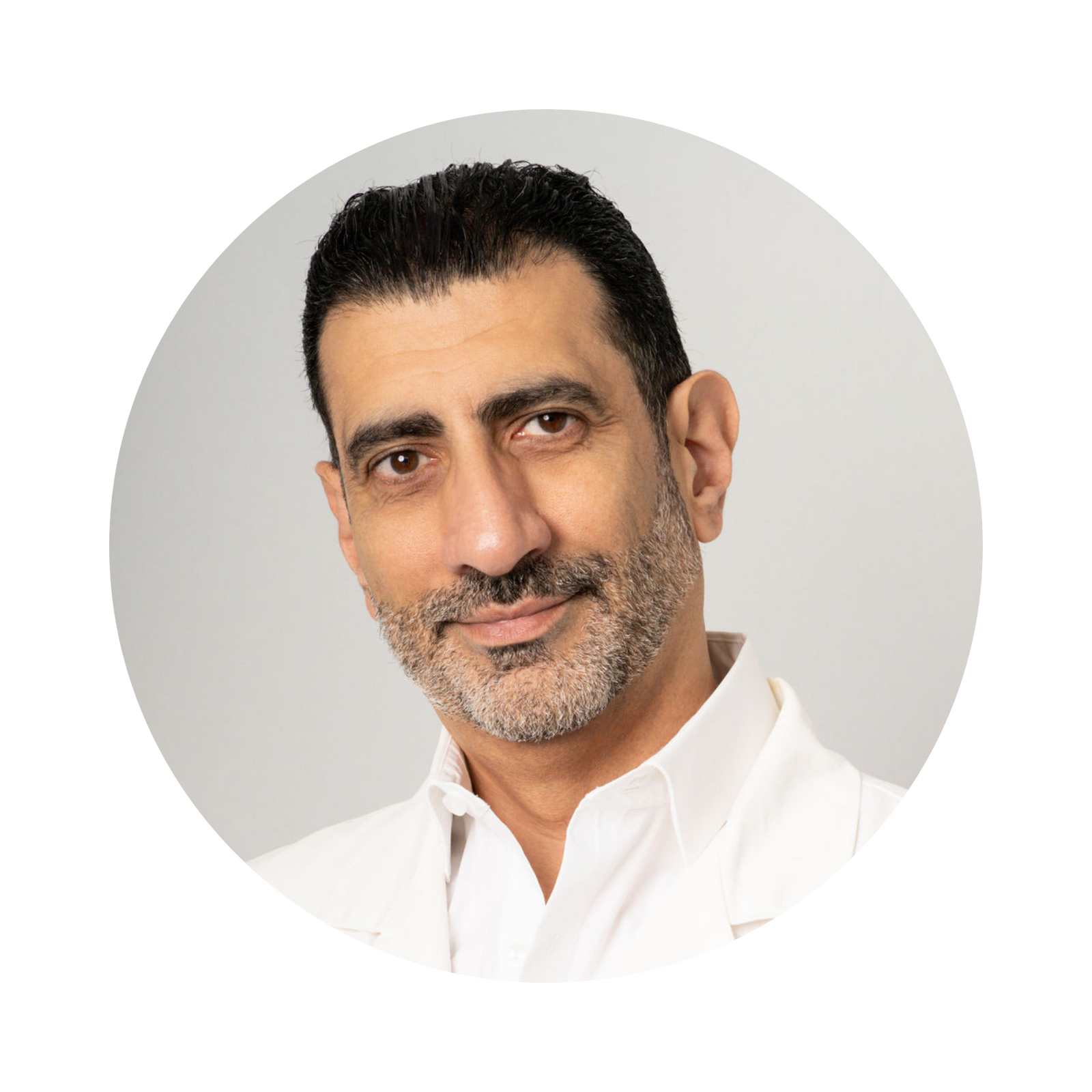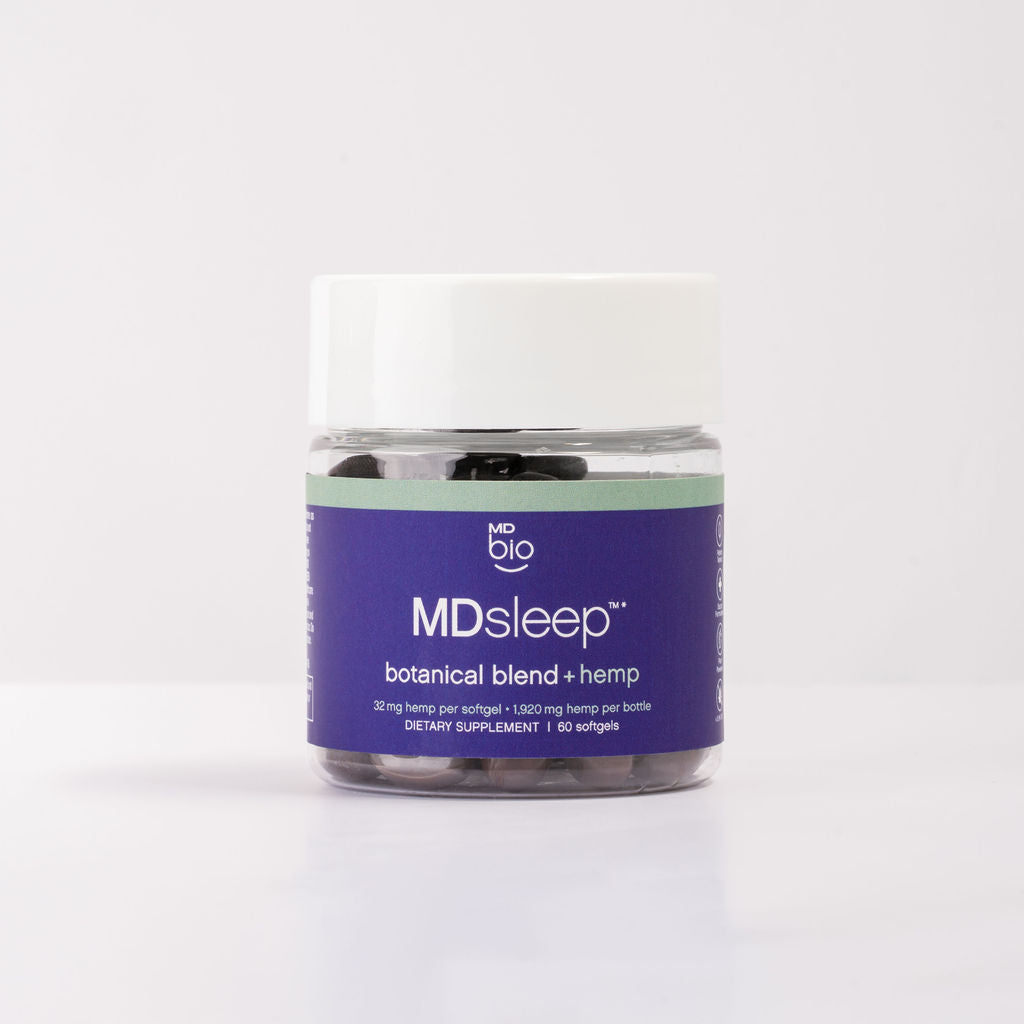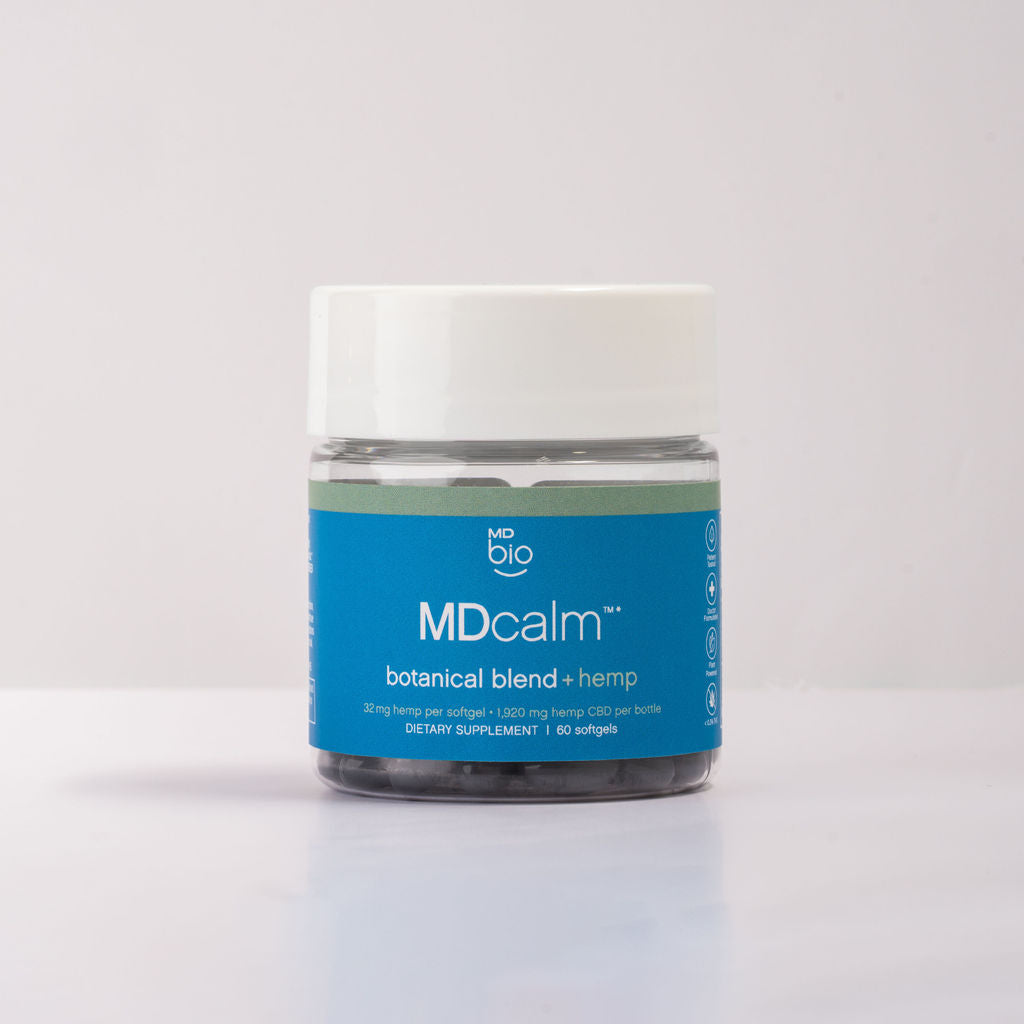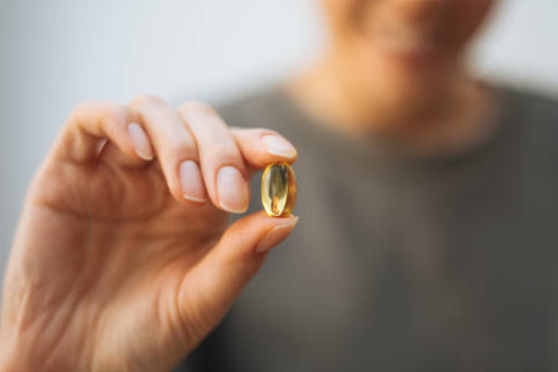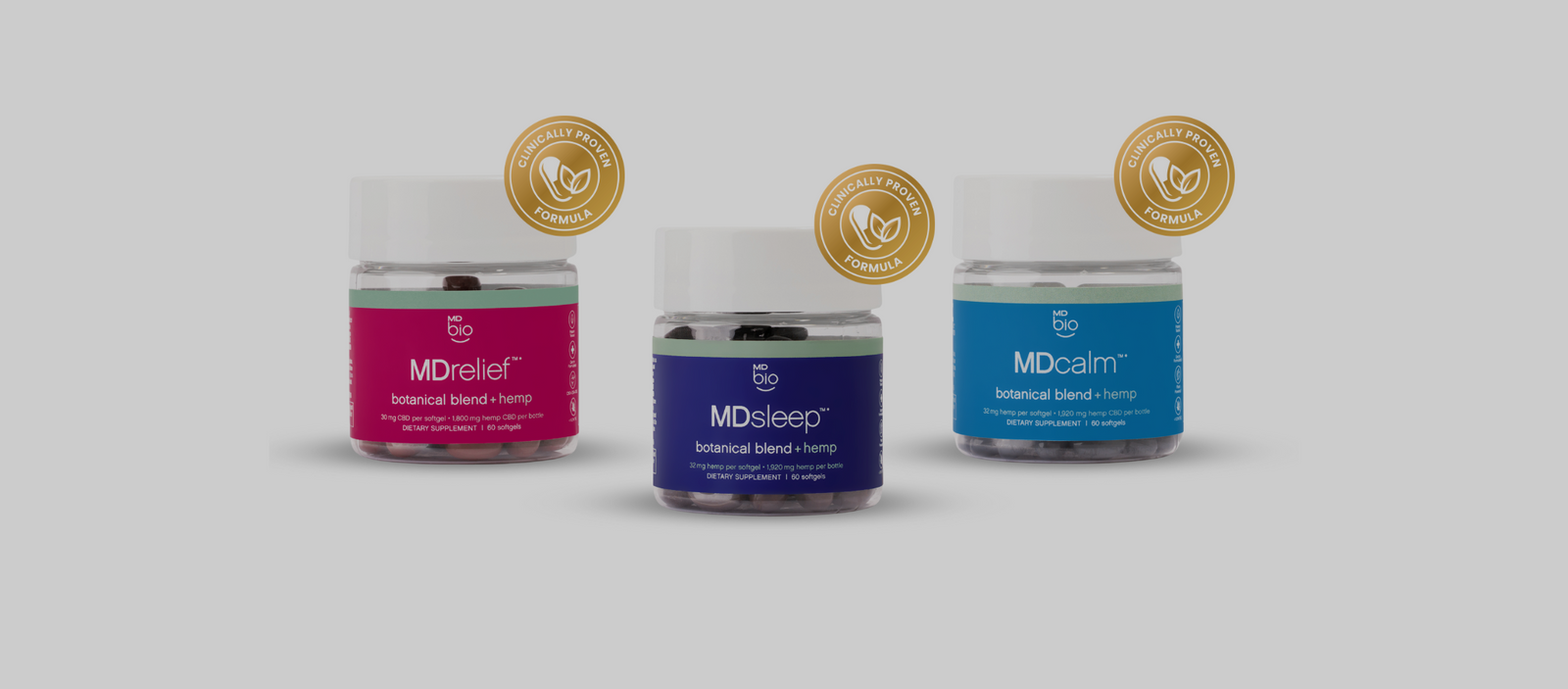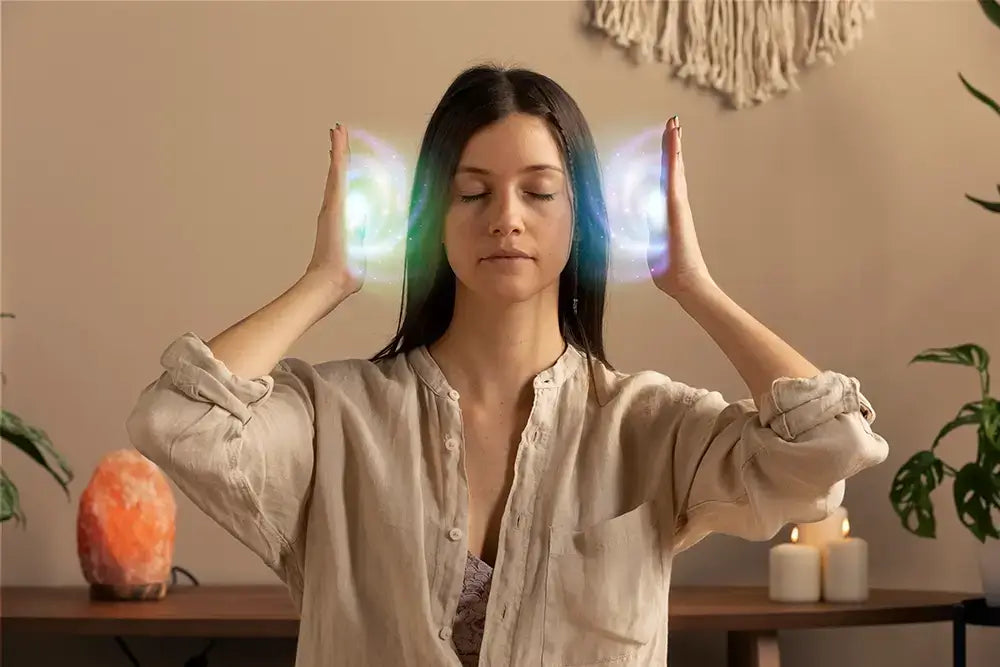
Sleep is essential for being healthy. You can follow many tips and tricks to improve your sleep hygiene, but sometimes those aren't enough. If you suffer from anxiety or chronic sleep issues, it may be time you look into a natural sleep aid to get your sleep schedule back on track.
There are a variety of natural remedies, including ashwagandha for sleep, that are sold as an alternative to prescription medicines and other over-the-counter medicines. There are also natural medicines for anxiety that can help ease nightly stress so that you can spend more time asleep.
If you are tired of being tired, don't stop looking for the right remedy to soothe your restless nights. Below is some more information on whether ashwagandha is right for you and how it can help you get a better night's sleep. If you're interested in the benefits of ashwagandha as a sleep aid, check out the supplements that MDbio offers that have similar benefits for your anxiety symptoms.
What is Ashwagandha?
Ashwagandha (Withania somnifera) is sometimes called the “Indian Winter cherry" or “Indian Ginseng” and is an evergreen shrub that grows in parts of Asia and Africa. It is commonly used in herbal medicines to aid a range of elements and offers a variety of health benefits. Ashwagandha has been used in traditional Indian Ayurvedic medicine, which helps promote the balance between the mind, body, spirit, and the environment.
How and when you can take it will vary, but it is advisable to take lower doses if you are combining ashwagandha with other sleep supplements to decrease your risk of adverse side effects. One of the reasons it's so popularly used for natural remedies is to reduce anxiety and stress levels in the body for more fruitful rest and improved health overall.
Ashwagandha has been used to treat a variety of mental health and physical health symptoms. It doesn't get rid of the symptoms, but it helps ease them. This way, people can have an easier time getting through the day and night as they work to manage these symptoms. With all supplements and medicines, it affects every user differently, but many studies credit using ashwagandha for insomnia and other ailments.
The Benefits of Using Ashwagandha
Ashwagandha is considered an adaptogen, which refers to substances used in herbal medicines to stabilize psychological processes. This includes helping with stress and problems resting at night, which is one of the main reasons people use ashwagandha for sleep.
In addition to using ashwagandha as a sleep aid, it is commonly used to improve the functioning of the endocrine, nervous, and cardiopulmonary systems. It's been a popular remedy for people who seek help relaxing or decreasing stress levels in their day-to-day lives. There are a variety of natural medicines for anxiety with different ingredients that have the same calming effect on your body.
The herb can be taken in several forms, including a capsule or powder. It can be taken during the day or at night, depending on what effects you hope to achieve. If you are using ashwagandha for insomnia or a better night's rest, then it's recommended you take it before bed.
Long-term chronic stress can cause inflammation in the body. This can increase yourrisk of developing conditions, including obesity, diabetes, hypertension, heart disease, and stroke. Ashwagandha can reduce the cortisol levels in the body that is responsible for your body's stress response. It's also associated with reducing inflammation, reducing cancer risks, improving memory and immune functions, and can activate anti-aging properties.
People who are constantly stressed and anxious can benefit from adding ashwagandha to their daily routine. But Ashwagandha isn't right for everyone, even if it's rife with all of these benefits. MDbio has supplements for easing anxiety and insomnia with a few ingredients that have the same abilities as when you use ashwagandha as a sleep aid.
Ashwagandha for Sleep
Insomnia can have a detrimental impact on one's physical and mental wellbeing. Finding natural remedies to substitute medications that cause adverse effects can be challenging. Rest is a mandatory part of life, so there is no avoiding it. Finding the right remedy will help you have a better night, and your overall quality of life will improve when you get the rest and recovery you need.
Stressful times call for relaxing methods and remedies to get your body back to its baseline to enjoy a restful night's sleep and have a productive day. This is why ashwagandha as a sleep aid continues to be one of the popular alternatives to synthetic aids with a long list of side effects that may be detrimental to your health in the long run.
The plant's leaves contain triethylene glycol, which is a compound that promotes sleep induction. This is why ashwagandha for insomnia is used as a natural alternative. Taking it before bed helps you enter non-REM rest faster and get to the end of the cycle without waking up. Waking up within the first few stages of the sleep cycle is very common for people with insomnia. It contributes to their inability to stay asleep long enough to feel rested.
In addition to trienthylene glycol, ashwagandha contains withanolides. These contain a variety of benefits that include stress relief. High stress levels contribute to poor sleep quality and cause you to feel tired during the day. Using ashwagandha for sleep can help you feel rested the next day and minimize sleep-related anxiety.
MDcalm uses the benefits of adaptogens that help the body cope with stress and decrease its sensitivity to stressors. It uses different ingredients to function similarly to ashwagandha to help those who struggle with chronic stress relax before it's time to sleep. The more relaxed you feel before your head hits the pillow, the more likely you will fall asleep and stay asleep until it's time to wake up in the morning.
How to Use Ashwagandha as a Sleep Aid
Ashwagandha comes in various forms, including:
- Powder
- Capsules
- Tea
- Tinctures
- Gummies
Ashwagandha can also be used alongside other products in a drink or food to make it more appetizing and more seamlessly included in people's daily routines. There are many different ways to use it depending on the form you have it in and when your plan to take it as part of your nighttime ritual.
Individuals who use ashwagandha for sleep can find that it helps them fall asleep faster, stay asleep longer, and experience a better night's sleep overall. How you use it depends on the instructions that come with your specific product. It's recommended to use it for only up to three consecutive months.
Ashwagandha is a supplement and is therefore not reviewed by the U.S Food and Drug Administration (FDA). This means there could be ingredients in the product not listed in the product description or ingredients list. Be cautious when using a new product, and always check with your doctor beforehand.
Anxiety and stress can influence your mood and your sleep cycle. You can get the same benefits as ashwagandha by using the MDcalmsupplement. These natural products with similar elements featured in an ashwagandha sleep aid might better meet your needs.
Ashwagandha Compared to Other Sleep Aids
The ashwagandha sleep aid is just one of the many natural remedies that can help improve sleep habits. Other supplements, including CBN for sleep,can also help you get a good night's rest without a prescription. This is perfect for individuals looking for alternatives that include natural ingredients and don't come with a long list of potential side effects.
The FDA regulates prescription sleep medications, but they require a prescription, making them less accessible. Compare this to over-the-counter sleep aids that are more accessible and affordable.
Although many studies validate ashwagandha for sleep, other natural options may be more beneficial to you. Natural supplements are ideal for anyone looking for fewer or more natural ingredients to help them remedy their issues with anxiety and sleep. Some remedies may interact with other medications you're taking, so always check with your doctor before starting any new supplements.
CBN is similar in its effects. It is also an herbal, plant-based remedy used to calm the nerves and reduce stress throughout the day or before bed for improved sleep practices. With the increase in sleep disorders in adults, there are many different ingredients and forms of sleep aids that combat unhealthy sleep hygiene that results in poor health.
Finding out what sleep aid is right for you can require trial and error. Even if ashwagandha for insomnia works for some, it is not guaranteed to work for everyone. You still may struggle to sleep or find that your body or medications don't interact well with this alternative. Continue talking to your doctor. They can help you find ways to improve your sleep hygiene or help you treat an underlying sleep disorder.
The Side Effects of Ashwagandha
The long-term safety of using an ashwagandha sleep aid is unknown, so it's important to follow the instructions for the dosage and usage of your specific product. Ashwagandha hasn't been studied beyond taking it for three consecutive months. If your sleep issues persist, you may need to speak to your doctor about another sleep aid method.
Some common side effects that people have reported feeling when using ashwagandha for insomnia include:
- Nausea
- Upset stomach
- Diarrhea
- Vomiting
Some of the less common symptoms that people can experience include:
- Dry mouth
- Drowsiness
- Cough and congestion
- Blurred Vision
- Vertigo
- Rash
- Weight gain
- Hallucinations
Every product, supplement, or medicine can have side effects. It's important to be honest with your doctor if you take any other medications or supplements or if you have any known conditions that can cause you to experience any symptoms when taking them. This is to prevent experiencing any adverse effects or becoming ill.
The experiences of others can help you determine if this substance is right for you, but it doesn't guarantee that you will have the same or a similar experience.
How to Know if Ashwagandha is Right for You
Using one of the forms of an ashwagandha sleep aid may be an option for you if you are interested in trying natural alternatives to other over-the-counter sleep aids or prescription medicines.
Some people should avoid using any form of ashwagandha for sleep. The groups who should avoid it include:
- Anyone pregnant or breastfeeding
- Anyone with an autoimmune disease
- Anyone who has recently had surgery or is scheduled for an upcoming surgical procedure
- Anyone who has a thyroid disorder
If you fall into any of these categories, talk to your doctor about a remedy for your sleep problems that will work for you. If you have thyroid issues, ashwagandha can increase the thyroid hormone T4, a more active form of the hormone T3. When this conversion is increased in people who have an overactive or borderline overactive thyroid, this can spike hyperthyroidism.
Make sure to talk to your doctor before using ashwagandha for insomnia or any other supplements or medications to ensure they don't interfere with any other medications you may be taking.
Don't be surprised if one ingredient like ashwagandha doesn't solve all your problems with insomnia. These remedies work best in supporting your sleep hygiene but can't counteract a mountain of bad habits. So do your best to still follow some basic tips, like avoiding caffeine right before bed or giving yourself time to relax while using ashwagandha as a sleep aid.
Finding a Natural Remedy for a Better Night's Sleep
If you're looking to dream peacefully at night, a remedy like ashwagandha as a sleep aid could be a nice addition to your nightly routine. However, don't limit yourself to just one remedy. Sometimes, taking a supplement with several natural ingredients that ease insomnia will lead to better results.
If you're interested in the benefits of ashwagandha as a sleep aid but want to learn about potentially simpler options, discover the ingredients in supplements like those offered by MDcalm. These contain several ingredients; all are considered to help ease anxiety and insomnia that may give you the long night of shut-eye you've been looking for.
- Discover the Perfect Pair: Explore the Synergy and Differences of Ashwagandha and Valerian Root in our latest blog. Dive in now at mdbiowellness.com!
- Untangle the Connection: Explore Can Anxiety Cause Dizziness?
- Explore our comprehensive guide on 6 Insomnia Herbs - Natural Remedies to Help You Sleep better and achieve restful nights.


